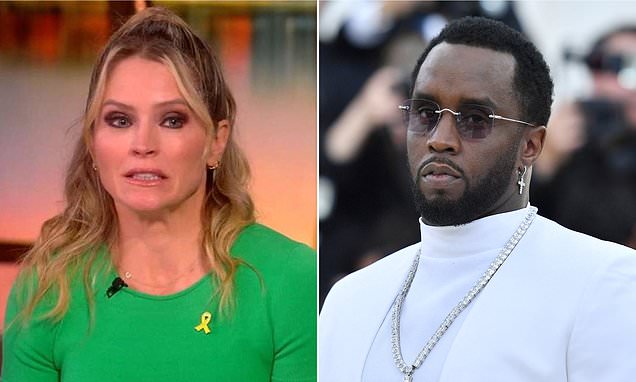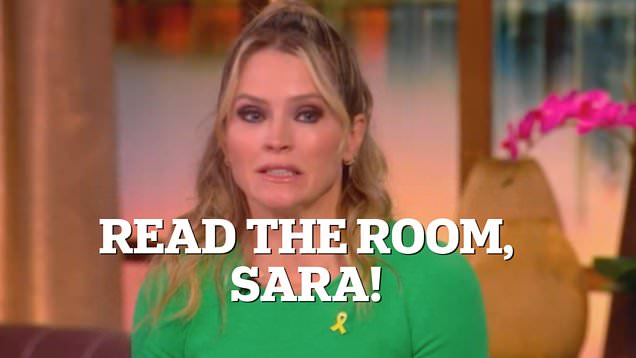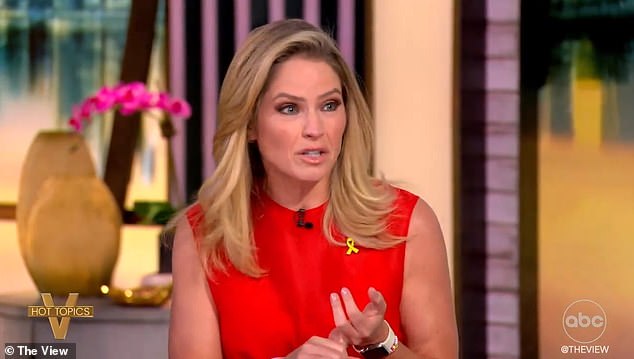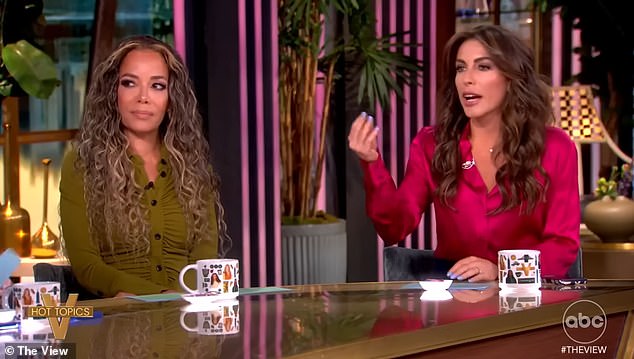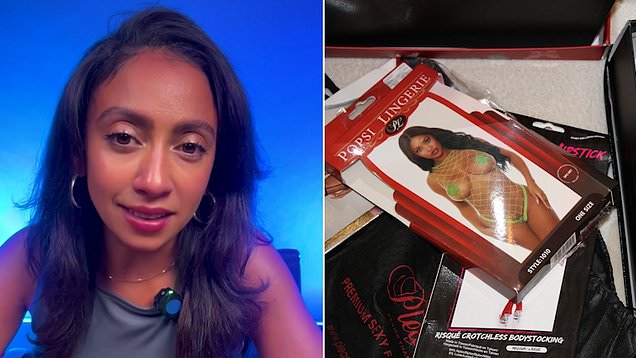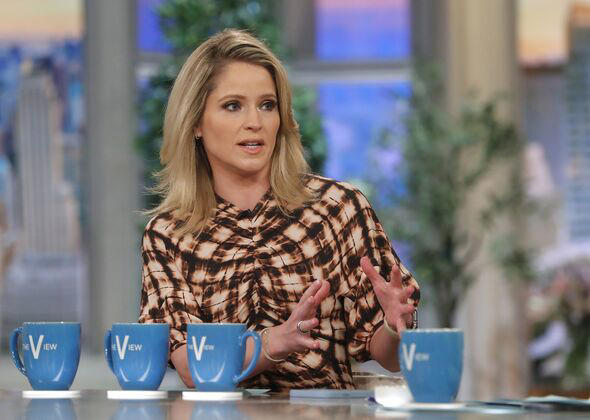The View host forced to apologize on-air over poor taste Diddy joke
Recently, Sara Haines, a co-host on “The View,” found herself in hot water after making a poorly received joke involving Sean “Diddy” Combs. The incident occurred during a segment discussing potential presidential pardons from Donald Trump, a topic that has generated significant attention and debate. Haines’ comment, which came in the midst of serious allegations against the rapper, including accusations of sex trafficking and racketeering conspiracy, received immediate backlash from both the studio audience and viewers at home.
Background on the Controversy
The segment began with co-host Alyssa Farah Griffin highlighting the strained relationship between Diddy and rapper 50 Cent. Griffin noted that 50 Cent has been vocal in trying to persuade Trump against granting pardons to Diddy, raising awareness of the gravity of the allegations against him. In an ill-timed jest, Haines made a comment that was met with disapproval, leading to an awkward moment during the live broadcast.
Acknowledging the backlash, Haines quickly attempted to soften the impact with a brief apology. However, her remarks raised questions about her judgment, reflecting a pattern of missteps that have garnered criticism from audiences in the past. The host’s choice to joke amid such serious discussions about allegations of misconduct led to a palpable tension on set.
The Importance of Contextual Sensitivity
The conversation soon shifted to a broader discussion of Trump’s history with pardons, especially concerning individuals facing serious charges. Co-host Sunny Hostin was particularly outspoken, expressing her disapproval of the idea of pardoning someone with Diddy’s extensive legal troubles. Hostin underscored the necessity of treating these allegations with the severity they warrant, indicating that humor has no place in discussions of such serious matters.
Joy Behar, another co-host, tried to introduce a lighter tone to the segment, but the earlier unease stemming from Haines’ comment lingered. This highlighted a broader issue within media discussions—navigating the delicate balance between humor and the gravity of current events. Haines’ comments also re-ignite discussions about how television personalities should handle sensitive topics, especially when it involves public figures facing serious accusations.
Reactions and Ramifications
The public reaction to Haines’ comments has been mixed, with many expressing disappointment over her flippant approach to serious allegations. Her suggestions in the light of Trump’s pardons, which were viewed as advocating for a selective outrage, did not sit well with a segment of the audience who felt it undermined the issue’s gravity. Critics have voiced concerns that Haines’ perspective positions viewers to dismiss significant concerns as merely part of a larger debate.
Speculation surrounding the internal dynamics at ABC has also surfaced, suggesting that there might be pressure from the network to adopt a more restrained approach to criticism of Trump. This could potentially explain Haines’ cautious demeanor when navigating on-air discussions. Her missteps have raised questions about the overall editorial direction of “The View” and the responsibility of co-hosts to address serious topics with the respect they deserve.
As the discourse evolves, the interactions on “The View” will continue to reflect broader societal debates about accountability, particularly for public figures involved in serious allegations. The fallout from Haines’ joke serves as a reminder for media personalities to consider the weight of their words, especially in an environment where accountability is paramount.
Moving Forward: The Need for Thoughtful Dialogue
Reflecting on this incident, it’s crucial for those in the media to recognize the impact of their commentary. As discussions around sensitive topics like allegations of misconduct continue to unfold, hosts and commentators must navigate these conversations with a sense of empathy and responsibility. Haines’ experience on-air illustrates the fine line between humor and the seriousness of current events and points to the importance of calamitous engagement in public discourse.
The situation also demonstrates that audiences are increasingly aware and vocal about how they feel concerning the blending of humor and serious commentary. As viewers continue to hold media personalities accountable, it becomes imperative for co-hosts like Haines to approach their roles with the gravity required to navigate ongoing societal dialogues effectively.
As fans and viewers, it’s essential to engage in discussions about how public figures address significant issues. Let your voice be heard—share your thoughts on how media programming can improve its approach to serious allegations and the tone used in discussions surrounding them. Your insights contribute to creating a more respectful and responsible media landscape.
